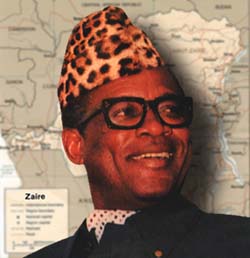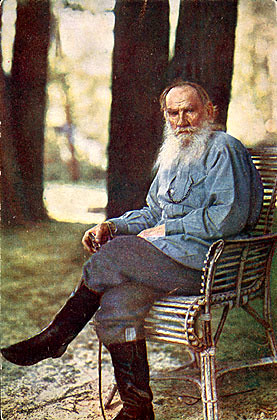
In A Bend in the River, the Trinidadian writer V. S. Naipul, has penned a novel indicative of the worst stereotypes. One need not go further than the first sentence to get to the heart of his ideology: “The world is what it is; men who are nothing, who allow themselves to become nothing, have no place in it.” Such vile, free market cold-blooded Darwinian absolutism sets the tone for a story short on human compassion, long on self-centered palaver.
It begins with Salim, a coastal Indian Muslim, escaping anti-foreigner violence at the end of colonialism, when much property of the former power structure was appropriated by revenge-minded nationalists. From a family friend, he buys a dry goods shop in an unnamed town in Africa’s interior, where later he is joined by one of his family’s slaves. There is a rebellion early on and a soldier who takes power in the capital becomes a megalomaniac dictator referred to by everyone as The Big Man. Early on, his powerful presence stabilizes the country. Violence and tribal rivalries fade and there’s an economic boom. Europeans arrive to advise and build infrastructure as well as chronicle this significant step in African history. The narrator’s shop business is thriving and he has a torrid love affair with a European woman married to someone close to the President (“The Big Man’s White Man”). Being close to the machinations of power, gives the main character a sense of identity and destiny, though it is illusory of course. The new boss is the same as the old boss: inevitably corruption and violence return, proving history to be cyclical, putting the narrator in a conundrum about whether to stay or flee.
A Bend in the River was shortlisted for the Booker Prize in 1979 and Naipul has won the Nobel Prize for literature. Such acclaim is difficult to comprehend considering the genuine failure of this, his most famous story. Like many writers, Naipul takes real-life historical events and frames them in a dramatic narrative, creating a mask disguising an author’s political philosophy, one of the great tricks of literary art. Yet it’s one thing for a writer to have appalling political viewpoints (i.e. Ayn Rand), so long as the writing itself works but having drearily sludged through several of his other books, I can spot a naked Emperor when I see one. V. S. Naipul is a very bad storyteller, on all the essential points.
Salim, for example, our narrator, is supposed to be a member of the Muslim diaspora, but he’s also a man who’s lost communion with his spiritual and cultural roots, practicing beliefs more out of habit than faith. But there is little to suggest the character is a real Muslim (Naipul is suspected of Hindu nationalist sympathies). In Salim, there is no piety, no loyalty, no moral compass. He needs an adulterous affair to feel better about himself. He constantly looks for the weaknesses in others, obviously to salve his own self-esteem issues. Naipul seems to suggest that the only way to survive in such dog-eat-dog circumstances, one must act selfishly as Salim behaves in all his interactions. He is a cold person, calculating, envious of the success of others, a thinking man but at the expense of real emotions.
Then Naipul’s storytelling instincts can feel distinctly out of step. Every time something vaguely dramatic occurs, his character withdraws from the action for analysis, an annoying habit of one step forward, three steps back. Stylistically, these digressions can be very long-winded—one hears not the narrator but Naipul’s presence, his pedantic blah. This is especially evident at a critical moment in the story, when Salim and Yvette commit adultery. Naipul elaborates in his typically sexless form:
“To write about the occasion in the manner of my pornographic magazines would be more than false. It would be like trying to take photographs of myself, to be the voyeur of my own actions, to reconvert the occasion into the brothel fantasy that, in the bedroom, it ceased to be.”
Does anyone, particularly a shopkeeper, bother with such pseudo-existential jabberwocky in the throes of an exciting, illicit affair? But this romance, an expendable subplot that has little to do with the big theme (which is what exactly…? Africans, they can’t do anything right?), is problematic. There is little to suggest why an educated and ambitious woman would fall for Salim. Naipul doesn’t bother to illustrate an attraction nor a courtship. It just happens, chemistry be damned. In fact, the affair, only serves to alienate us further from the narrator, as it climaxes in misogyny and unbelievably, masochistic submission, a ridiculous male fantasy concept which betrays Naipul’s complete incapacity to draw out and understand women.
Though Naipul has a Victorian tendency towards exasperating exactitude, he never directly mentions the town nor the country he is in by name, though it is obviously The Congo (formerly Zaire) and The Big Man (portrayed in leopard print hat and cane in ubiquitous reproduced photos) is clearly Mobuto Sese Seko. Why this conceit, unless Naipul believes that the violence and anarchy affecting the story’s region is not a Congo problem but an African one? It’s all but clear that Naipul has calculated for this disastrous state to represent the continent as a whole. The problem of violence and corruption then is not specific but general.

Though not as odious as ideology, tedium can be offensive in its own distasteful fashion. What is most incredible about Naipul’s effort is that it could take the Congo, Africa’s literary “heart of darkness” and all its attached sex, violence, wildness, history and promise and make it dull. That is what he does and it is because of his prose. Naipul writes like a neutered academic, a showoffy dinner companion one endures at a wedding due an ill-fated seating arrangement. One expects some kind of payoff from all this talk but after so many words, one learns the point is the words themselves and not the story and that it is for his benefit, not yours. I’m talking about the worst kind of storyteller— know-it-all, masturbatory, self-indulgent, offensive. Ugly. What’s just as remarkable is that for all the praise Naipul receives for his language, there is not a single beautiful sentence in the entire novel. Nothing amuses nor surprises. Nothing enchants.
There is little incentive then to read beyond the book’s opening lines, “The world is what it is; men who are nothing, who allow themselves to become nothing, have no place in it.” Africa and its Africans is a failure, and thus have no place at the world’s dinner table. One can, as Naipul does, ignore the complexities of tribalism, the holocaust of the slave trade and the exploitation of the colonial system and blame Africa’s problems on the Africans themselves. It’s easy, it’s clean, and it makes for a good, bloody yarn. For all its circular syntax and complicated contextualizing then, the purpose of the novel, under the cover of flashy, intellectual grandstanding, is simplification cynically celebrated: Those Africans… they deserve it.































